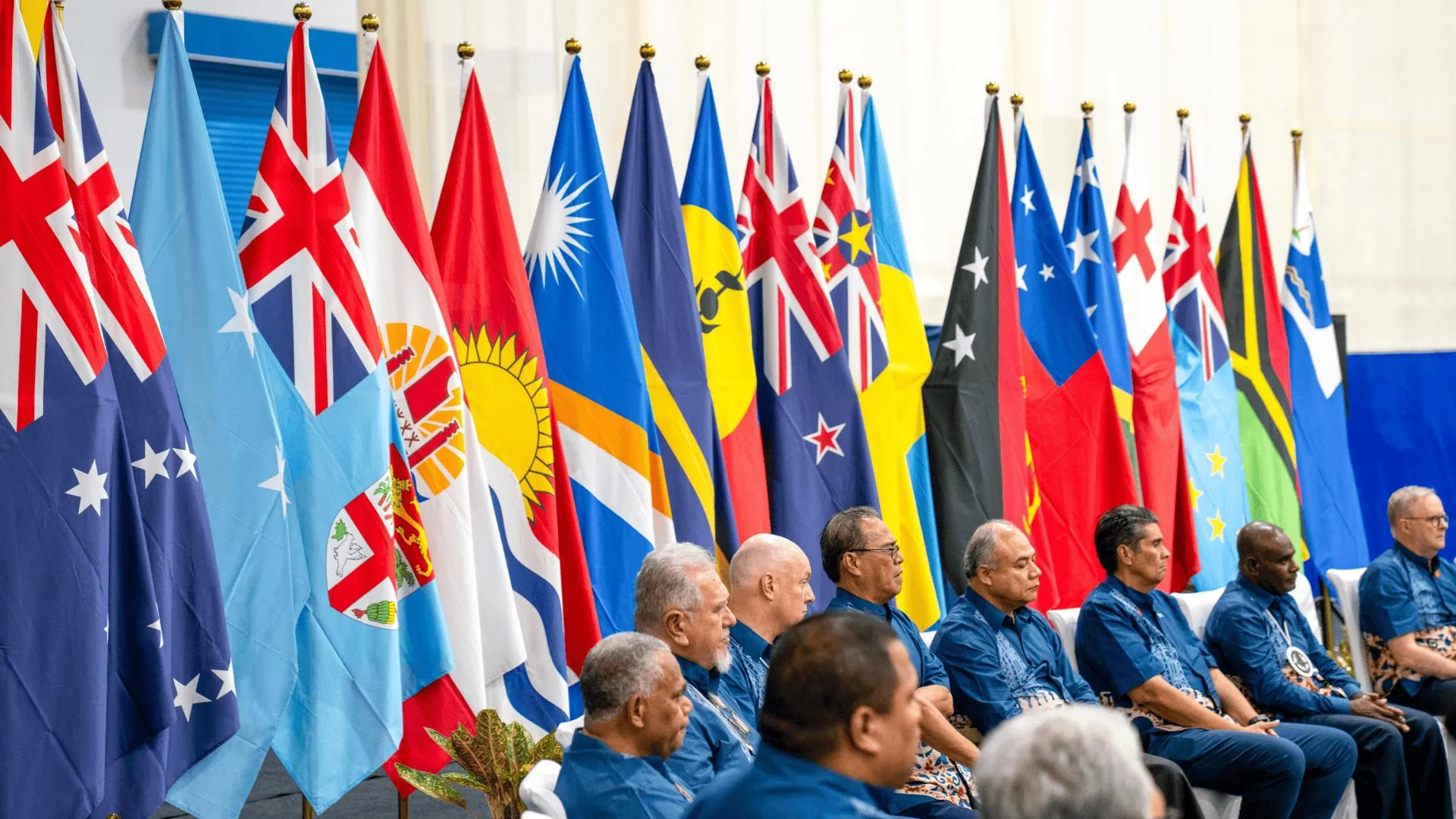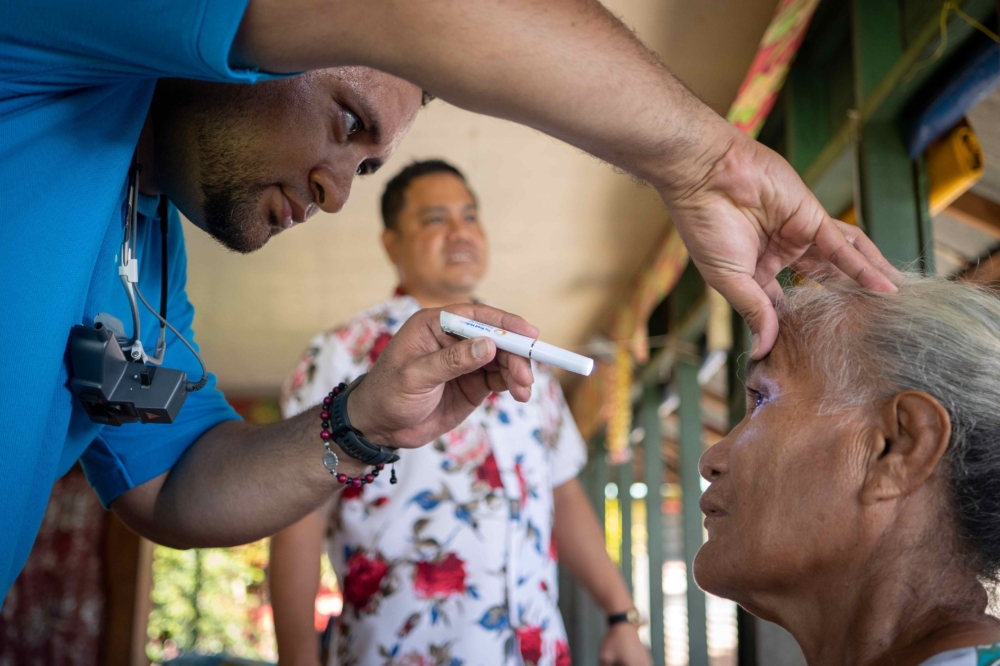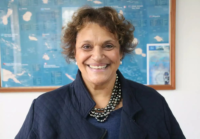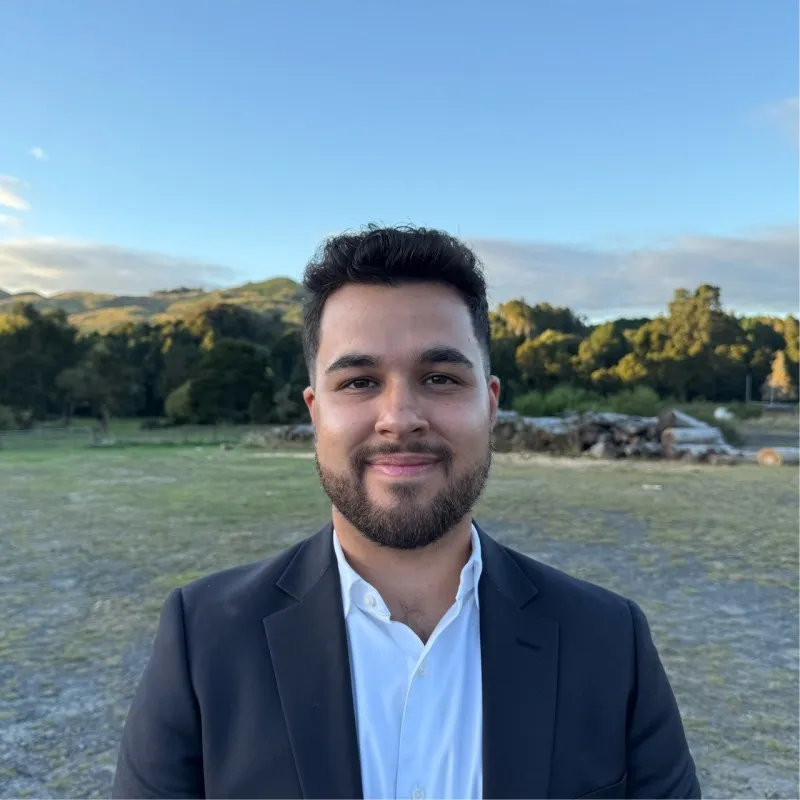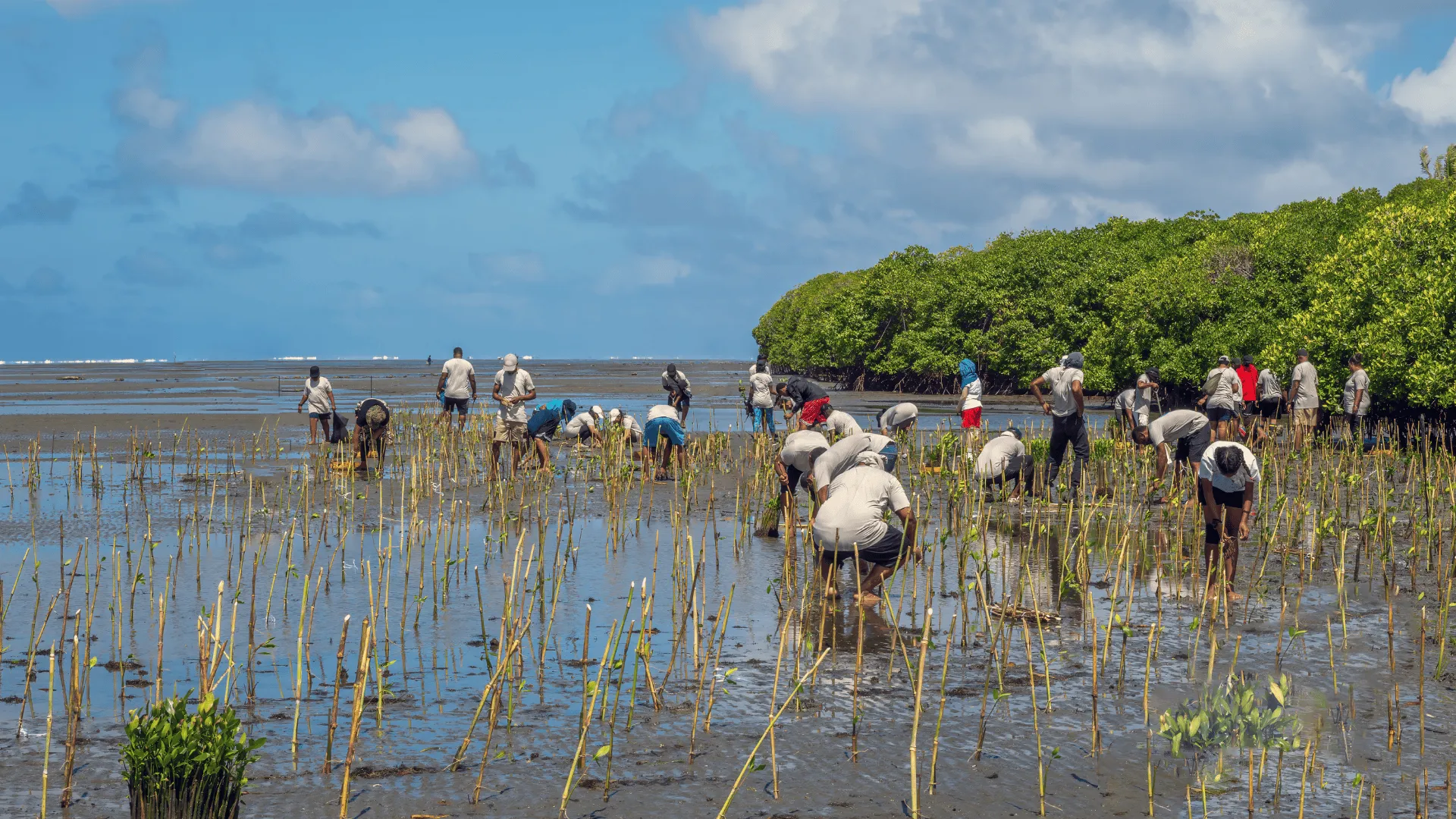The voyage to Pacific regional integration
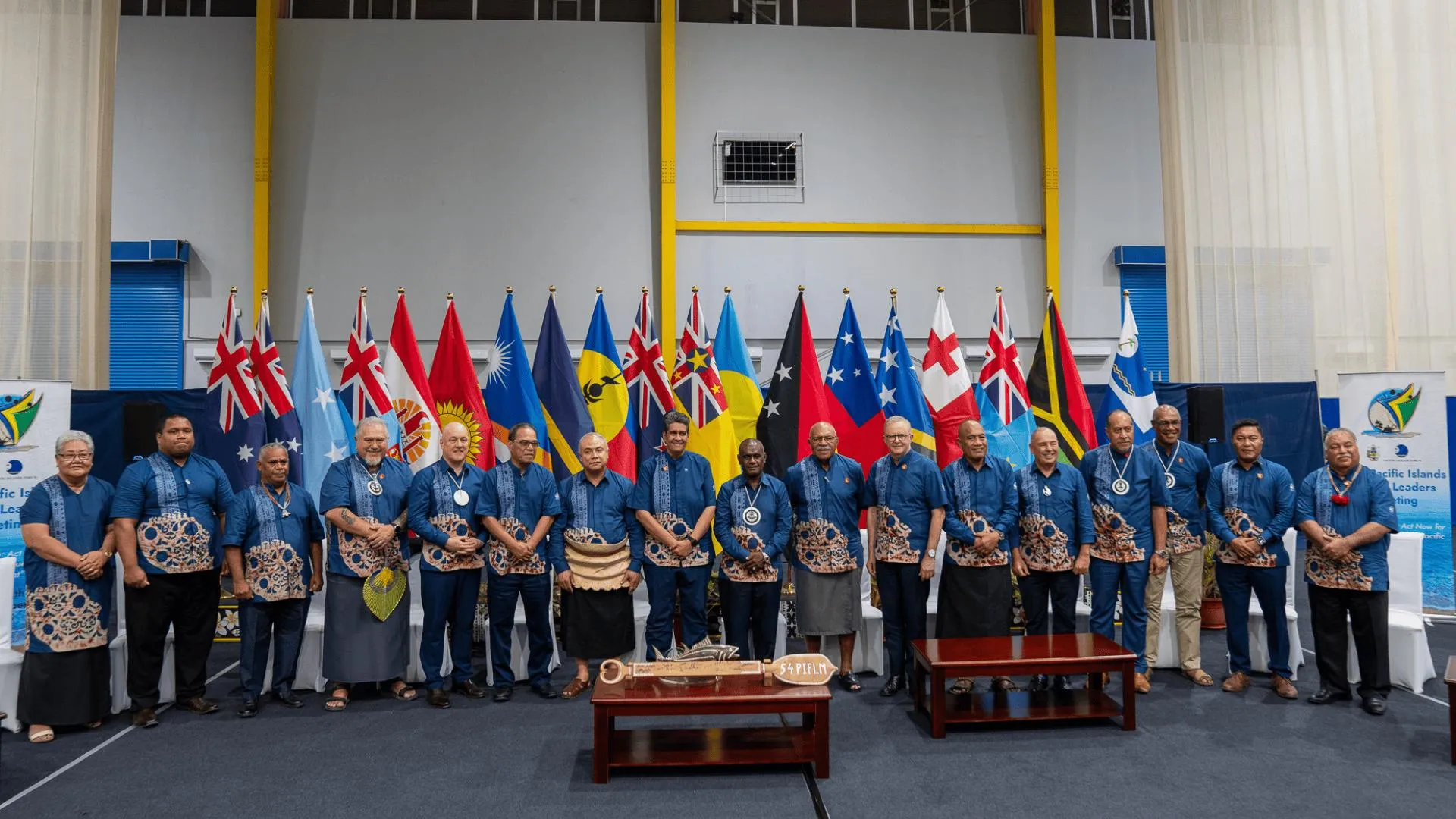
Leaders at the Pacific Islands Forum 54th Leaders’ Meeting in Honiara. Photo: Ministry of Foreign Affairs & External Trade/Facebook
Pacific leaders are confronted by a race between order and disorder as they gather this week in Honiara for the annual Pacific Islands Forum Leaders’ Meeting.
On the one hand, the challenges of climate change, geopolitics, transnational crime and improving health and education for Pacific citizens. On the other, the possibility of uniting as never before – and putting the Pacific’s own stamp on the geopolitical contest of our age.
Solomon Islands is often the crucible in which Pacific regionalism is shaped: from the region coming together in RAMSI to assist Solomons in its hour of need, arguably the world’s most successful peacekeeping mission; to Solomons’ role on the frontline of geopolitical manoeuvring in the Pacific; to its choice of regional integration as the theme for the Forum this year.
Regional integration is both challenge and opportunity, with heavy implications for all Forum members – but perhaps Australia most particularly. Has the time come to invest more sovereignty in Pacific regionalism?
The Forum is the Pacific’s equivalent of the European Union. It was created in 1971 to reflect the concerns of newly independent Pacific island countries: further decolonisation; economic development; the protection of maritime and environmental resources; and nuclear testing by Western powers.
In its 50-plus-year history, the Forum can claim significant wins. As a united bloc, members have had an outsized impact on the global stage promoting their interests.
But newly independent countries weren’t interested in investing their just-won sovereignty in the sort of integration that marked the European project. And Australia, the Forum member with the resources to support an integration effort, didn’t make a grand proposal to incentivise such a conversation.
Australia pursued close migration and economic arrangements with New Zealand, but not beyond. Relationships with former colonies ended without special migration, trade and education measures in place. Australia claimed a non-discriminatory immigration policy, but the practical effect was European backpackers were gifted the opportunity of seasonal work in Australia over Pacific neighbours.
Those dynamics are now changing on both sides. Tired of the modern narrative about the constraints of small island countries, Pacific leaders have reclaimed traditional understandings of the Pacific as being made up of large oceanic states. To underscore the point, Forum Leaders boldly declared the creation of a new continent in 2017: the Blue Pacific Continent.
A constitution for the Pacific region followed, the 2050 Strategy for Blue Pacific Continent, which Forum leaders agreed in 2022. This sets out a clear vision for closer ties in coming decades.
Forum members’ approach to sovereignty and integration are necessarily evolving in the climate change age. The Pacific is leading conversations about what sovereignty beyond ancestral homes might involve. And Australia has started on the pathway to offering more creative and generous migration arrangements.
An Australian proposal for a Blue Pacific visa, or Blue Pacific passport – more akin to Australia’s relationship with New Zealand – would catalyse the discussion about Pacific regional integration. Any regional integration bargain would be a complex balance of wins and trade-offs, but a Blue Pacific visa would be the big win driving the wider bargain.
Geopolitics, and the benefits of a united Pacific block in these tumultuous times, strengthens the case for a new integration bargain. Forum leaders will put an important plank in place this week with their Ocean of Peace Declaration. The declaration is part of the Pacific’s pushback against geopolitics and security being defined on anything other than the Pacific’s terms.
The declaration sets out a holistic approach to Pacific security, reflecting Pacific culture and tradition; expectations for how external actors should behave; the climate change threat; and the importance of multilateralism and the rules-based order.
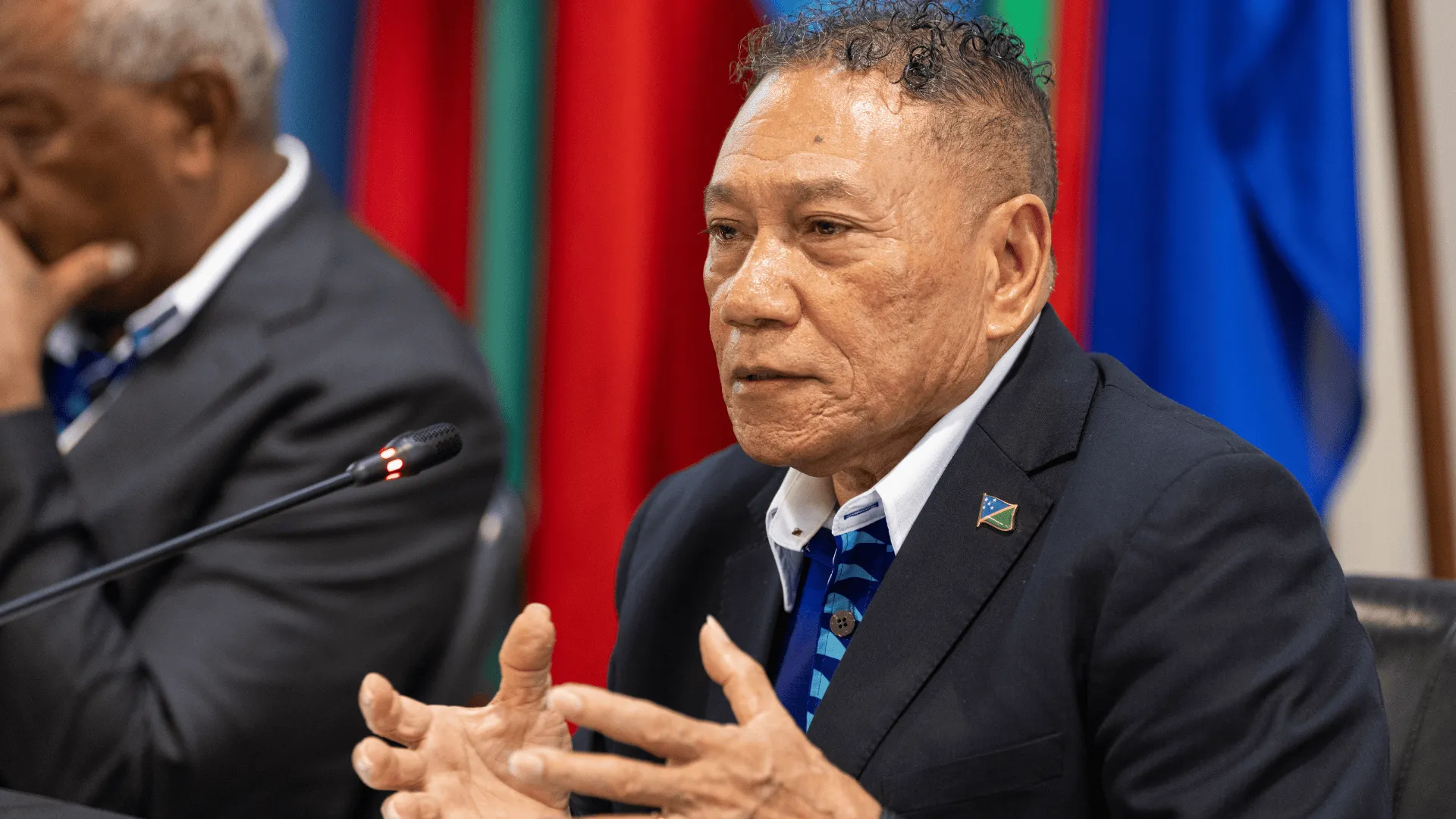
Honourable Peter Shanel Agovaka, Solomon Islands’ Minister for Foreign Affairs, at the Pacific Regional and National Security Conference. Photo: Pacific Security College
Solomon Islands’ Minister for Foreign Affairs, Peter Shanel Agovaka, has said, “The Ocean of Peace is like a beacon of light. It is important for us to see the Ocean of Peace made up of principles that will guide our relationships and allow us collectively to navigate a challenging international system.”
So, should we be optimistic Forum leaders will go beyond their standard briefs and talking points, to start the journey towards a new regional bargain?
The Pacific Regional and National Security Conference is the equivalent of Asia’s Shangri-La Dialogue. In closing that conference this year, Niue Prime Minister Dalton Tagelagi posed the question of whether the Pacific would fall or rise in confronting the polycrisis of climate change, geopolitics and transnational crime.
Prime Minister Tagelagi said he faced the future with hope and optimism: having seen what the Pacific community was capable of when it came together, he was confident the Pacific would beat the challenges before it.
Professor Dave Peebles is the Director of the Pacific Security College.
This article was first published by The Canberra Times.
Views expressed via the Pacific Wayfinder blog are not necessarily those of the Pacific Security College.

